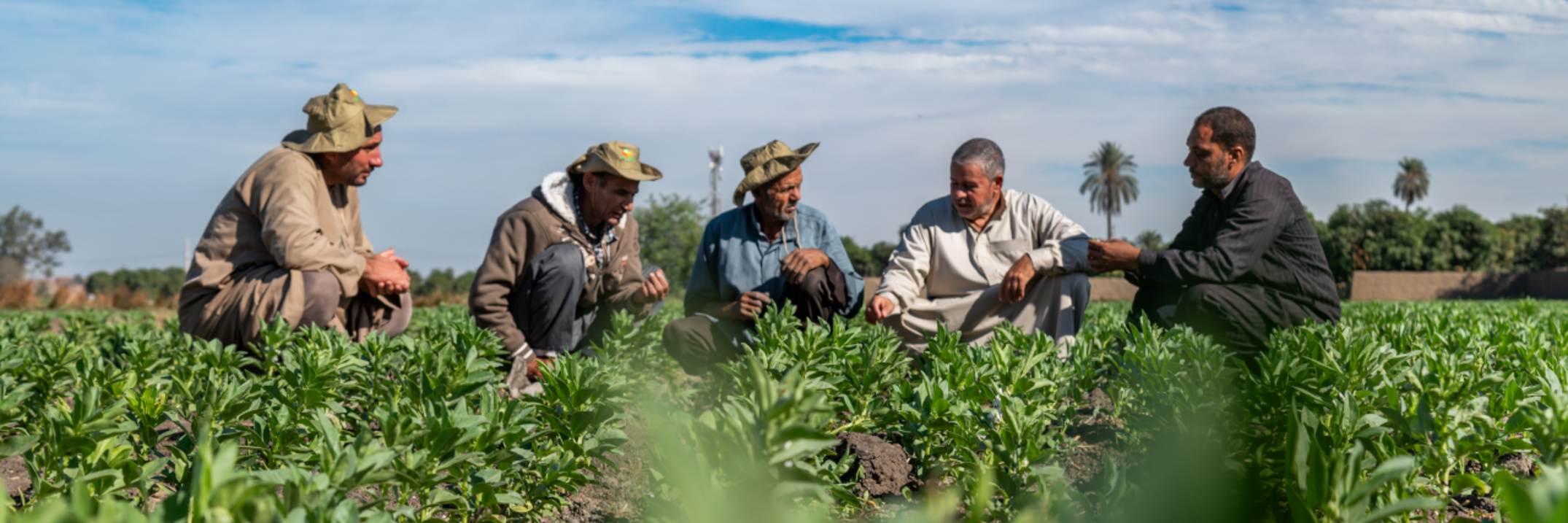


ICARDA, working in close collaboration with its network of partners across Central and West Asia, and North Africa (CWANA) and the Middle East, generates pioneering agricultural innovation for food system transformation amidst the climate emergency and other challenges that rural dryland farmers and agricultural economies face. Our mission is to strengthen dryland farmers' livelihoods and food security at the frontline of the climate emergency in one of the world's hottest, most water-stressed, socially and ecologically fragile regions.
The Central and West Asia, and North Africa (CWANA), and the Middle East regions face significant challenges in producing enough food to nourish a population that is one of the fastest growing in the world.
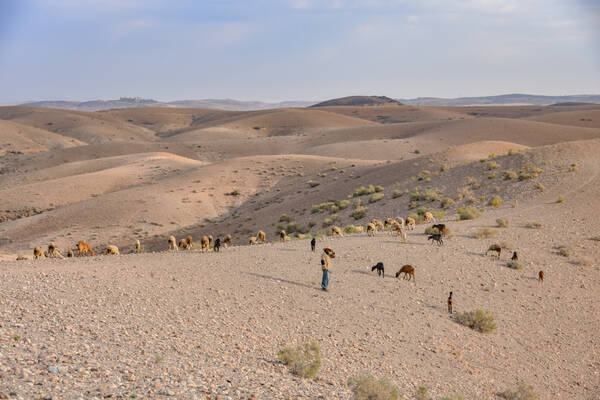
A scarcity of rainfall and irrigation water, agrobiodiversity loss, and unhealthy agricultural ecosystems limit the region's agricultural ability to keep pace with fast-changing and complex demographics and climate conditions. Added to this, degradation affects over 55% of agricultural land.
These challenges will only intensify as the climate emergency accelerates. Prolonged and extreme periods of drought will increase, adding to the water stress that 50% of the region's population already live under. As temperatures rise, existing and novel crop pests and diseases will proliferate. Overstretched natural resources will adversely affect food systems as they deplete, reducing income and employment opportunities across the value chain and affecting the livelihoods of millions of vulnerable people. An upsurge in youth unemployment, already high, combined with an increasing population, is likely to trigger an acceleration in climate-driven migration and urbanization.
Political unrest continues across a region that already hosts over 40% of global Internally Displaced Persons (IDPs) and 33% of international refugees fleeing ongoing conflicts. Such upheavals disrupt supply chains already exposed to vulnerabilities due to trade uncertainties and price spikes, further exacerbated by the region's overdependence on imported food, with up to 40% of cereals imported. Producers and businesses struggle to access the natural and financial resources to manage risks.
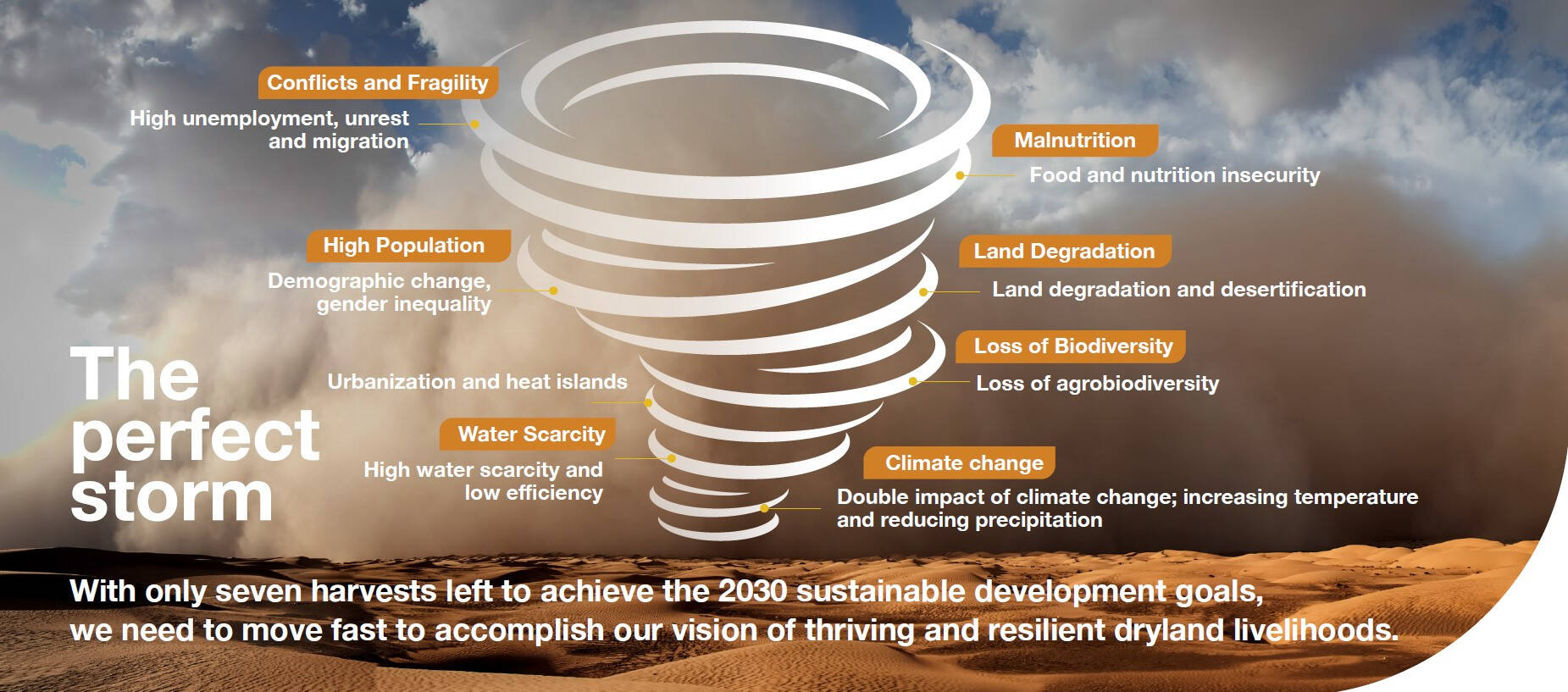
Yet, it is not too late to transform the region's food systems and maximize its agricultural potential. CWANA's unique resources and ICARDA's 40+ years of research, innovation, and trusted networks offer significant opportunities for advancing global agricultural science in the face of climate change. However, an urgent and substantial increase in agricultural research investment is required to aid the millions of vulnerable people in CWANA and beyond. Donors and decision-makers must counteract the global trend of diminishing research funding. Investing in climate-smart agricultural research and innovation is a proven method to scale out new, climate-smart approaches and ignite the generation of agri-innovation to meet existing, evolving, and new challenges.
Despite the agrobiodiversity loss and land degradation, the CWANA and Middle East region is still home to a rich and diverse wealth of crops and livestock, adapted over millennia to dry, hot climates in a wide variety of ecosystems.
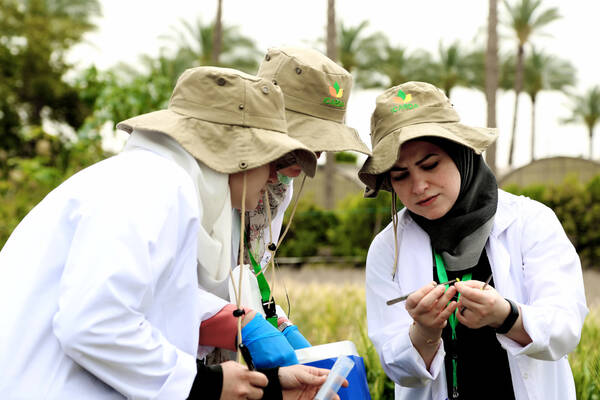
That means the region offers global agricultural science a multitude of opportunities for research from its abundant (though fast disappearing) biodiversity, to its past and modern history in adapting different agricultural and agrosilvopastoral approaches that are increasingly relevant for a world experiencing similar climate shocks of drought and heat.
These opportunities make the region a 'living lab' on which ICARDA's research and science are built - climate-driven agri-initiatives mixing scientific and traditional knowledge, diversified food production systems, and strengthened livelihoods of farmers, rural communities, and value chain stakeholders.
ICARDA is proud to lead this groundbreaking work in close collaboration with its partners, paving the way for the rest of the world to adapt to, and mitigate, intensifying climate impacts on global agriculture.
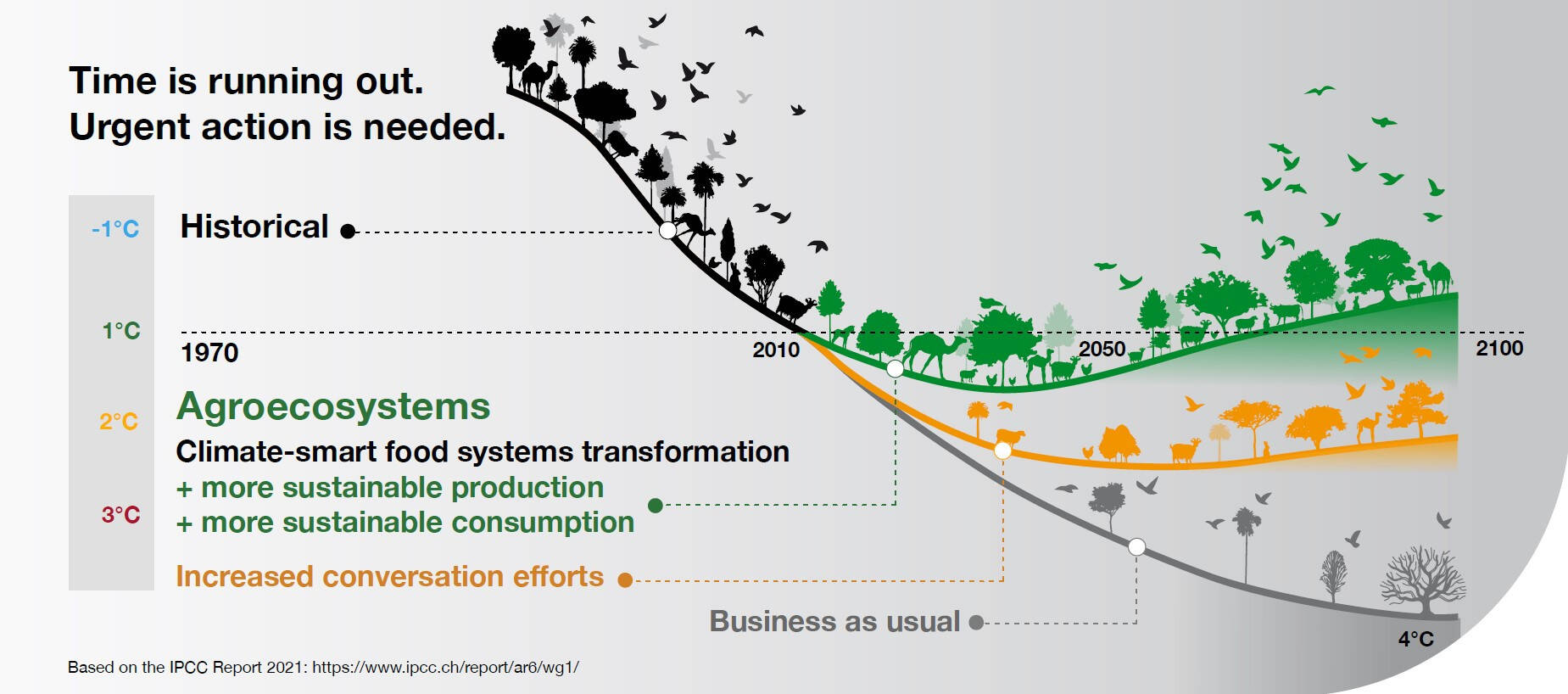
We need to act swiftly to equip dryland farmers for climate change – the many challenges that they face are interconnected and accelerating, and the solutions are complex. The good news is that we are not starting from scratch. We already have evidence-based approaches at our disposal to cultivate dryland resilience that are ready to be scaled. Our new strategy retains our focus on climate-smart crops, mixed farming, agrosilvopastoral systems, and better land, soil, and water management. We have added a new component to inform future innovations and stay ahead in a fast-changing environment. Success requires a global collaborative effort. Through our network of partners, we are already sharing knowledge and resources to step up action and scale up our impact on the ground. This is only possible through the crucial support of our funding partners, but much more investment is needed to make a real difference. Agricultural research in the dry areas can bring huge returns – in food security, economic resilience, and the creation of healthy food systems that replenish the natural capital on which we all depend, rather than depleting it. It requires substantial and disruptive investments that drive transformative change. The cost will be high. The cost of inaction now will be higher for the next generation.
© 2026 International Center for Agricultural Research in the Dry Areas (ICARDA)